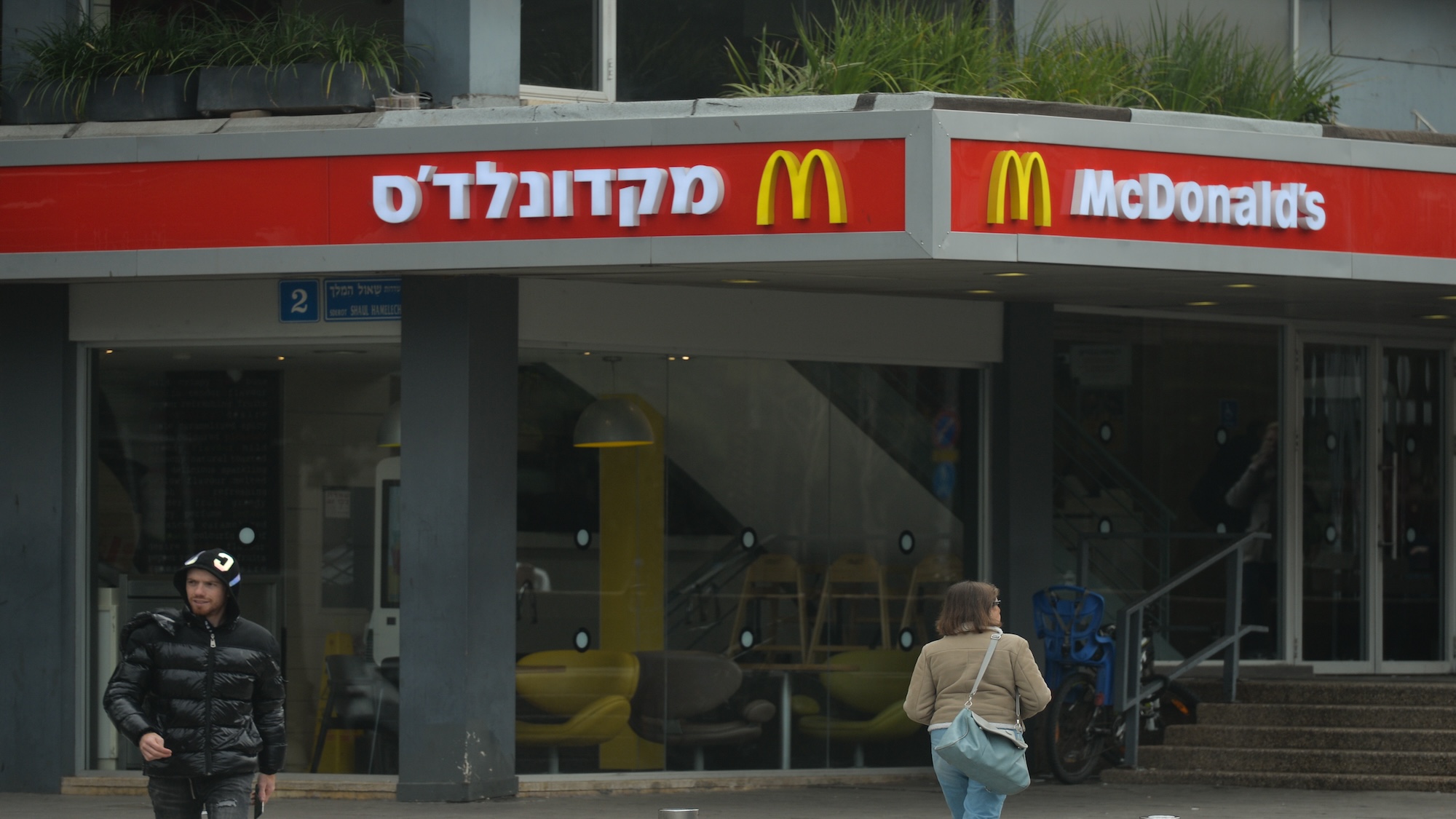How companies are responding to the Israel-Hamas war
Employees of some brands are asking their companies to choose sides in the conflict


A free daily email with the biggest news stories of the day – and the best features from TheWeek.com
You are now subscribed
Your newsletter sign-up was successful
The debate over the conflict between Israel and Hamas isn't just raging on among individuals — companies, too have become embroiled in the war, whether willingly or unwillingly.
Taking a public stance has moved off of college campuses and spread to multinational corporations. Brands with thousands of employees "are seeking to find a balance in their responses to the war that don’t offend users, partners and their own employees," The New York Times reported. But as colleges have found, "that isn’t easy."
From tech corporations to fast-food giants, here's how a few companies have weighed in on the war between Israel and Hamas.
The Week
Escape your echo chamber. Get the facts behind the news, plus analysis from multiple perspectives.

Sign up for The Week's Free Newsletters
From our morning news briefing to a weekly Good News Newsletter, get the best of The Week delivered directly to your inbox.
From our morning news briefing to a weekly Good News Newsletter, get the best of The Week delivered directly to your inbox.
McDonald's
The world's most iconic fast-food enterprise has been working to assist soldiers and civilians in Israel. McDonald's Israel operates over 200 stores across the country, and the controversy started when one of these franchises "said it would provide free meals to Israeli soldiers as well as hospitals," The Washington Post reported. Since then, these initiatives have expanded across the country, and McDonald's Israel has given out more than 100,000 free meals to soldiers of the Israeli Defense Force (IDF), the company said on social media.
Amid all the free food, however, McDonald's operators across the majority-Muslim Middle East expressed anger over the Golden Arches' decision. Franchises in "Saudi Arabia, Oman, Kuwait, the United Arab Emirates, Jordan, Egypt, Bahrain and Turkey" pushed for a boycott of Israeli stores and pledged humanitarian efforts for Gaza, Al Jazeera reported. McDonald's Oman wrote on X, formerly known as Twitter, that it had raised $100,000 toward these efforts.
Even prior to the Israel-Hamas war, McDonald's stores in the Middle East "have been repeatedly targeted as symbols of the United States," the Post reported.
Starbucks
The globe's largest coffeehouse chain, like McDonald's, has become embroiled in the conflict — and is similarly divided between different factions of the company. Starbucks is suing its union, Starbucks Workers United, after the labor group "posted a since-deleted message on X ... expressing solidarity with Palestinians," ABC News reported. Following this occurrence, ABC noted, Jewish groups began to call for a boycott of Starbucks as they learned of the union's position.
A free daily email with the biggest news stories of the day – and the best features from TheWeek.com
In a statement announcing the lawsuit, Starbucks said the stance of the union, which represents employees at more than 360 U.S. stores, has "led to Starbucks partners, including some they represent, being threatened and subjected to graphic messages." However, Workers United responded with its own statement, per Fortune, saying that Starbucks corporate "defamed the union by implying it supports terrorism."
As the lawsuit goes on, the union recently released another statement saying it was "opposed to violence" and "absolutely condemn antisemitism and Islamophobia."
Following the attack by Hamas on Oct. 7, Google CEO Sundar Pichai wrote on X that his initial goal was employee safety, as well as "working to provide reliable, accurate information to people through our products, as well as sharing the cyber activity that our experts are seeing." Google, which has 2,000 employees in Israel, will also be providing humanitarian assistance, Pichai added.
However, in the aftermath of Pichai's statements on Israel, some Google employees "grew increasingly dismayed that the company had made no statement regarding the loss of Palestinian life," according to The Washington Post. Employees have begun circulating a petition demanding Google cut ties with Israel over a pending cloud computer contract with Israel, the Post reported.
Web Summit
An annual tech conference in Lisbon, Portugal, Web Summit made headlines around the world after its CEO, Paddy Cosgrave, accused Israel of violating international laws. Cosgrave wrote on X that "war crimes are war crimes even when committed by allies, and should be called out for what they are."
The backlash to Cosgrave's comments was swift, and brands including "Google parent company Alphabet, Meta, Siemens and Amazon" all pulled out of Web Summit as a result, CNN reported. Cosgrave eventually wrote a follow-up letter that clarified his stance on the matter. This did not quell the online furor, though, and Cosgrave stepped down as CEO of Web Summit on Oct. 21. In a statement to CNN, Cosgrave said his comments "have become a distraction from the event, and our team, our sponsors, our start-ups and the people who attend."
Justin Klawans has worked as a staff writer at The Week since 2022. He began his career covering local news before joining Newsweek as a breaking news reporter, where he wrote about politics, national and global affairs, business, crime, sports, film, television and other news. Justin has also freelanced for outlets including Collider and United Press International.
